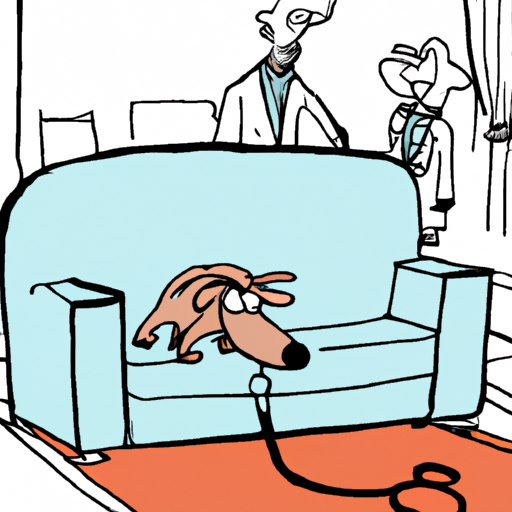As a loving caregiver to your furry friend, you might have noticed how they squirm or whine when it’s time to visit the vet. You often wonder why this is the case. Why do dogs hate the vet? This is a question that puzzles many pet owners. In this article, we will delve into the reasons behind this common canine behavior, and suggest some practical strategies to help your pup overcome their vet-phobia.
Understanding Your Dog’s Fear
Your dog’s fear of the vet might seem irrational to you, but from their perspective, it’s completely justified. Let’s look at some key issues contributing to this fear:
- Unfamiliar Environment: Dogs love routine. An abrupt change in environment, such as a trip to the vet, can upset them. Vet clinics often have distinct smells, sounds, and sights that can be overwhelming for your pet.
- Physical Discomfort: Many vet procedures involve physical discomfort, such as shots or examinations. Dogs remember these uncomfortable experiences and associate them with the vet.
- Separation Anxiety: Dogs are social animals. They feel anxious when separated from their owners, which is often the case during vet visits.
Strategies to Reduce Vet-Phobia
Now that you understand why your dog dislikes the vet, let’s explore some strategies to help them overcome this fear.
Familiarize Your Dog with The Vet Clinic
Make vet visits a routine part of your dog’s life, not just when they are sick or in need of a check-up. This can help reduce their anxiety. Here are some steps you can take:
- Organize regular, non-clinical visits to the vet.
- Allow your dog to explore the vet’s office freely.
- Praise and reward your dog for calm behavior during these visits.
Prepare Your Dog For Physical Examinations
Preparing your dog for the physical aspects of the vet visit can go a long way in reducing their anxiety. Here are some techniques:
- Regularly touch and handle your dog at home in ways similar to a vet examination. This includes touching their paws, ears, and mouth.
- Condition your dog to accept treats and praise as a reward for tolerating these actions.
Use Anxiety-Reducing Tools
There are several tools available to help reduce your dog’s anxiety. These include:
- Anxiety wraps or vests.
- Prescription medications.
- Calming pheromone sprays.
| Tool | Description | How to Use |
|---|---|---|
| Anxiety Wrap/Vest | These apply gentle, constant pressure to calm anxiety, fear, etc. | Wrap around your dog as per instructions. |
| Medication | Prescription drugs to help reduce anxiety. | Use as directed by your vet. |
| Pheromone Sprays | These mimic dog-appeasing pheromones to calm your dog. | Spray in your dog’s crate or bed. |
Training Your Dog to Be Calm
Training your dog to remain calm during a vet visit is crucial. This involves rewarding them for calm behavior and discouraging anxious or fearful responses. Remember, this is a gradual process that requires patience and consistency.
Building a Positive Relationship with Your Vet
Having a good relationship with your vet can also help your dog feel more comfortable during visits. Make sure your vet is aware of your dog’s anxiety and discuss possible ways to make visits less stressful.
Frequently Asked Questions
Q: My dog is extremely terrified of the vet. What should I do?
A: If your dog’s fear is extreme, consider consulting with a professional dog trainer or behaviorist. They can provide specialized training to help your dog cope with their fear.
Q: Can I stay with my dog during the vet visit?
A: This depends on the vet clinic’s policy. Some allow owners to stay during examinations, while others don’t. Discuss this with your vet.
Q: Are there specific breeds that are more prone to vet-phobia?
A: Vet-phobia is not breed-specific. It can occur in any dog, depending on their past experiences, personality, and training.
Now that you understand why dogs hate the vet, remember to be patient with your furry friend. Their fear is real and, as their loving caregiver, it’s up to you to help them navigate through it.



